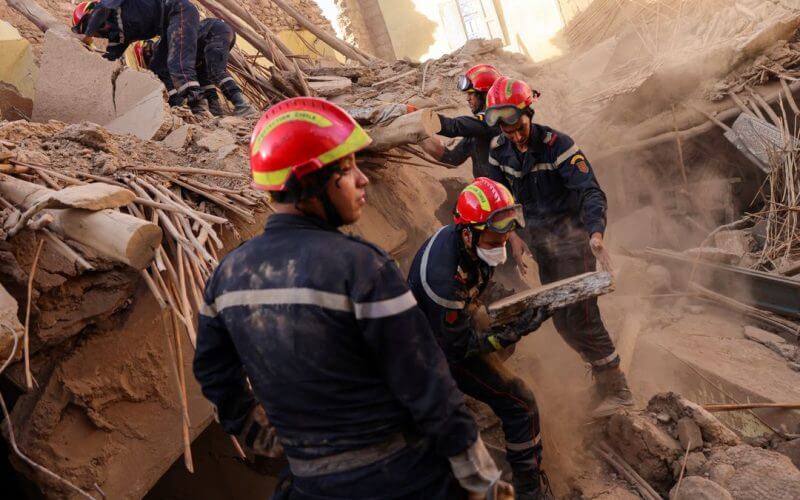Days after the devastating earthquake struck Morocco and killed upwards of 2000 in the Marrakesh region, the Moroccan government has yet to accept most foreign assistance.
According to reports, there is news of teams arriving in Rabat, with Spain sending 56 rescuers and four search dogs after receiving a formal request for help. Qatar has a group on the way with specialized equipment. Tunisia also has sent a delegation of over 50 rescue experts.
However, many countries were still waiting for authorization from Moroccan authorities amid growing questions by some that with the hours going by and the chances of finding survivors decreasing, the nation did not seem to be accepting aid fast enough.
Speaking to Radio France, Arnaud Fraisse, founder of French aid organization Rescuers Without Borders, said he had a team stuck in Paris waiting for approval. Fraisse said the Moroccan government was "blocking all rescue teams."
Foreign aid offers have been offered to Rabat, including many countries that have pledged assistance but do not have the go-ahead, like Israel, the US, France, the UK, Turkey, Algeria, and Taiwan.
The United Nations said it sent a team to Morocco to coordinate with authorities about how international partners can provide support.
Around 100 teams of the 3,500 rescuers are registered with a UN platform and ready to deploy in Morocco when asked, Rescuers Without Borders said.
The UN estimates that 300,000 people were affected by the quake, with some Moroccans complaining on social networks that the government was not allowing more help from outside.
In Israel, the military and other private bodies, including Magen David Adom emergency responders and the IsraAID organization, had prepared rescue teams to help Morocco but could not depart since Rabat had yet to accept their offers.
Speaking to The Times of Israel, Foreign Ministry spokesman Yossi Zilberman said that the MASHAV, the Israeli ministry's international aid arm, prepared several alternatives for humanitarian aid shipments depending on the specific needs of Morocco. Zilberman said the aid could include food, medicines, medical equipment, tents, water purifiers, and more.
The Foreign Ministry previously sent several diplomats to Rabat to beef up the staff helping Israelis leave Morocco.
According to Zilberman, the consular office has not had any cases of Israelis who lost their documents, and the efforts to help Israelis head home have been smooth. Officials said contact was established with all 479 Israeli citizens in the country, and all were safe.
The earthquake brought neighbor Algeria, which cut ties with Morocco two years ago, to put aside animosities and open its air space to aid flights.
The death toll from the earthquake currently stands north of 2,000, with authorities speculating that the figure would rise further as rescuers struggled to reach hard-hit remote areas.
On Sunday, a magnitude 3.9 aftershock rattled Moroccans as they prayed for victims and worked to rescue survivors while soldiers and workers brought humanitarian supplies to villages in ruins.
Moroccan King Mohammed VI ordered flags to be lowered throughout Morocco, calling for three days of national mourning starting Sunday.
The army mobilized specialized search and rescue teams, with the government ordering water, food rations, and shelter for those who lost their homes.









